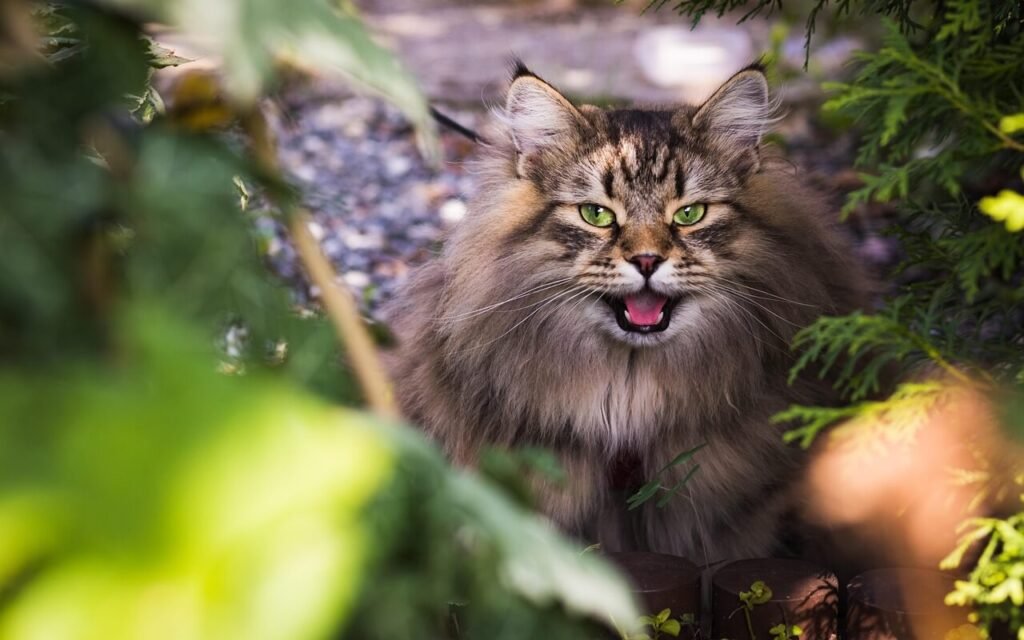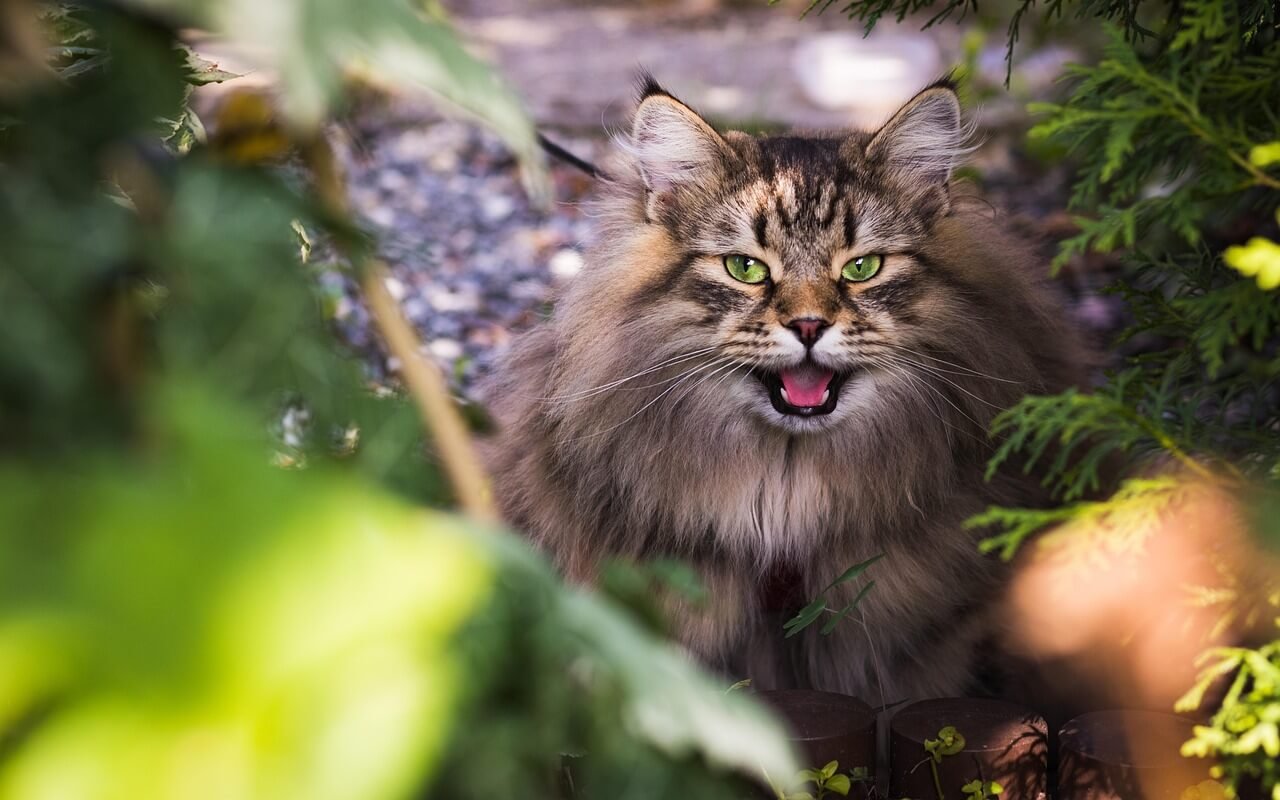Exotic Cat Breeds: A Glimpse into the Extraordinary
Cats have long been cherished companions, but some breeds stand out for their unique appearances, personalities, and histories. Exotic cat breeds captivate us with their striking features, from wild-inspired coats to rare color patterns and distinctive temperaments. Whether you’re a seasoned cat enthusiast or simply curious about these extraordinary felines, exploring exotic breeds offers a fascinating journey into the diversity of the feline world. In this blog post, we’ll delve into what makes these breeds so special, their care requirements, and why they continue to enchant cat lovers worldwide.
Top 5 Most Popular Exotic Cat Breeds
Exotic cat breeds are often celebrated for their unusual traits and captivating beauty. Here are five standout breeds that consistently capture the hearts of cat enthusiasts.
Bengal Cat:
Known for its leopard-like spots and sleek coat, the Bengal is an energetic and intelligent breed that thrives on interactive play and mental stimulation.Sphynx Cat:
Famous for its hairless appearance, the Sphynx is a warm and affectionate breed that requires regular skincare to maintain its unique look.Scottish Fold:
With its distinctive folded ears and sweet expression, the Scottish Fold is a gentle and adaptable companion perfect for families.Maine Coon:
One of the largest domesticated cat breeds, the Maine Coon is admired for its luxurious fur, friendly demeanor, and dog-like loyalty.Savannah Cat:
A hybrid of domestic cats and servals, the Savannah boasts a wild appearance, impressive size, and playful, adventurous personality.
These breeds showcase the incredible variety within the feline world, each offering something truly extraordinary for potential owners.

Unique Traits of Exotic Cat Breeds
What sets exotic cat breeds apart from their more common counterparts? Their distinct characteristics make them both intriguing and challenging to care for.
Wild-Like Appearances:
Many exotic breeds, such as Bengals and Savannahs, resemble wild cats, making them visually stunning but requiring experienced handling.Unusual Coat Patterns:
From the marbled patterns of the Bengal to the ticked fur of the Abyssinian, exotic breeds often feature one-of-a-kind markings.Distinct Physical Features:
Breeds like the Sphynx and Scottish Fold are instantly recognizable due to their unique physical traits, which set them apart from other cats.High Energy Levels:
Exotic breeds tend to be more active than typical house cats, needing ample opportunities for exercise and mental engagement.Specialized Care Needs:
Whether it’s the Sphynx’s skincare routine or the Savannah’s dietary requirements, these breeds often demand extra attention to stay healthy.
The combination of beauty and complexity makes exotic breeds a rewarding choice for dedicated cat lovers.
Check this guide 👉 The Silver Bengal Cat: Best 7 Expert Tips!
Check this guide 👉 The Enchanting World of the Blue Persian Cat: Best 7 Tips!
Check this guide 👉 The Majestic Black Maine Coon: best 7 Expert Tips!
Exotic Cat Breeds | Care Requirements |
|---|---|
Bengal Cat | High-protein diet, regular playtime |
Sphynx Cat | Weekly baths, sunscreen for sensitive skin |
Scottish Fold | Ear cleaning, joint health monitoring |
Maine Coon | Regular grooming, spacious living areas |
Savannah Cat | Secure outdoor space, enrichment activities |
Challenges of Owning Exotic Cat Breeds
While exotic cat breeds are undeniably fascinating, they also come with unique challenges that prospective owners should consider before bringing one home.
Higher Costs:
Exotic breeds often require significant upfront investment, including purchase fees, specialized food, and veterinary care.Intensive Grooming Needs:
Breeds like the Sphynx and Maine Coon need frequent grooming to maintain their appearance and health.Specialized Veterinary Care:
Some exotic breeds may face breed-specific health issues, necessitating visits to veterinarians familiar with their needs.Increased Activity Levels:
High-energy breeds like Bengals and Savannahs can become destructive if not provided with enough stimulation and exercise.Legal Restrictions:
Certain exotic breeds, such as Savannahs, may be subject to ownership restrictions depending on local laws.
Understanding these challenges ensures you’re prepared for the responsibilities of owning an exotic cat.
How to Choose the Right Exotic Cat Breed for You
Selecting the perfect exotic cat breed involves careful consideration of your lifestyle, preferences, and ability to meet their unique needs. Here are some factors to guide your decision.
Assess Your Living Space:
Larger breeds like Maine Coons and Savannahs need plenty of room to roam, while smaller breeds like the Sphynx adapt well to apartments.Evaluate Your Budget:
Consider the costs of purchasing, feeding, grooming, and providing medical care for your chosen breed.Match Their Energy Level to Yours:
If you’re an active person, high-energy breeds like Bengals might suit you; otherwise, calmer breeds like Scottish Folds could be a better fit.Consider Allergies:
Hairless breeds like the Sphynx may appeal to allergy sufferers, though they still produce allergens through saliva and skin oils.Research Breed Temperament:
Each breed has a distinct personality—ensure it aligns with your expectations for companionship and interaction.
Taking the time to evaluate these factors will help you find an exotic breed that fits seamlessly into your life.
Famous Exotic Cat Owners
Celebrities and public figures have long been drawn to exotic cat breeds, showcasing their allure on social media and beyond. These stories highlight the bond between humans and their extraordinary feline companions.
Taylor Swift and Her Scottish Fold, Meredith:
The pop star famously adores her Scottish Fold, who has become a beloved internet sensation.Ed Sheeran’s Bengal Cat, Dorito:
Ed’s spotted Bengal reflects his playful personality and love for unique animals.Iggy Pop’s Sphynx Cats:
The rock legend owns two Sphynx cats, whose quirky looks match his eccentric style.Kristen Stewart’s Savannah Cat:
Known for her adventurous spirit, Kristen shares her life with a Savannah, a breed as bold as she is.Paris Hilton’s Persian Mix, Tinkerbell:
Though not strictly exotic, Paris’s pampered pet inspired a trend of celebrity cat ownership.
These examples demonstrate how exotic cats bring flair and companionship to the lives of their famous owners.
Fun Facts About Exotic Cats
Exotic cat breeds are full of surprises, with quirks and traits that make them even more endearing. Here are some fun facts to deepen your appreciation for these amazing felines.
Bengals Love Water:
Unlike most cats, Bengals enjoy playing in water and may even join you in the shower!Sphynx Cats Aren’t Actually Hairless:
They have a fine layer of fuzz, giving their skin a soft, suede-like texture.Scottish Folds Have Unique Ears Due to Genetics:
Their folded ears result from a natural genetic mutation that affects cartilage development.Maine Coons Are Natural Mousers:
Historically, Maine Coons were prized for their hunting skills on farms and ships.Savannah Cats Can Leap Over 8 Feet:
Their powerful legs allow them to jump incredible heights, showcasing their athleticism.
These fascinating tidbits reveal just how remarkable exotic cats truly are.
Tips for Bonding with Your Exotic Cat
Building a strong connection with an exotic cat takes time and effort, but the rewards are immeasurable. Follow these tips to strengthen your bond and create lasting memories.
Spend Quality Time Together Daily:
Engage in interactive play or simply relax together to build trust and familiarity.Use Positive Reinforcement:
Reward good behavior with treats, praise, or toys to encourage a positive association with you.Respect Their Boundaries:
Allow your cat to approach you on their terms, especially during the initial adjustment period.Provide Enrichment Activities:
Puzzle feeders, climbing trees, and interactive toys keep your cat entertained and engaged.Learn Their Body Language:
Understanding your cat’s signals helps you respond appropriately to their needs and emotions.
By fostering a strong bond, you’ll enjoy a lifelong partnership filled with love and mutual respect.
Frequently Asked Questions About Exotic Cat Breeds
Are exotic cat breeds suitable for first-time pet owners?
While some breeds are adaptable, others require experienced handling due to their unique needs.
Do exotic cats get along with other pets?
It depends on the breed and individual personality, but many exotic cats can coexist peacefully with dogs and other cats.
How much do exotic cat breeds cost?
Prices vary widely, ranging from 500 to over 2,000 depending on the breed and breeder reputation.
Can exotic cats live indoors?
Yes, most exotic breeds adapt well to indoor living, provided they receive sufficient stimulation and care.
What is the lifespan of exotic cat breeds?
On average, exotic cats live between 12 and 16 years, though proper care can extend their lifespan.
Embracing the Magic of Exotic Cats
Exotic cat breeds offer a glimpse into the extraordinary, combining stunning appearances with captivating personalities. While they require dedication and care, the joy and wonder they bring to our lives make every effort worthwhile. By understanding their unique traits, preparing for their needs, and choosing the right breed for your lifestyle, you can create a harmonious and fulfilling relationship with these remarkable felines. Whether you’re drawn to the elegance of the Sphynx or the wild charm of the Bengal, there’s an exotic cat breed out there waiting to steal your heart.
Do Cats Have Taste Buds? Best 7 Expert Tips! – Discover how cats experience flavors and why their taste is so unique.
Do Dogs Have Taste Buds? Best 7 Expert Tips! – Discover how dogs experience taste, their preferences, and what it means for their diet and health.
Can Cats Taste Sweet? Best 7 Expert Tips! – Discover why cats can’t taste sweetness, how it affects their diet, and tips to keep them healthy and happy.
Can Dogs Taste Sweet? Best 7 Expert Tips! – Discover how dogs perceive sweetness, which foods are safe, and tips to manage their sweet cravings responsibly.





